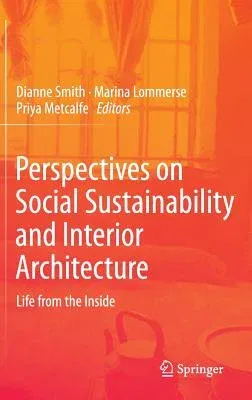This book argues that interior architects have a responsibility to
practice their profession in collaborative ways that address the needs
of communities and of to be the agents of social justice and cultural
heritage. The book is divided into three sections, based on three
pivotal themes - community engagement, social justice and cultural
heritage. Each section has chapters that put forward the principles of
these themes, leading into a variety of fascinating case studies that
illustrate how socially sustainable design is implemented in diverse
communities across the world. The second section includes four concise
case studies of community housing issues, including remote-area
indigenous housing and housing for the homeless. The third section
offers two extensively researched essays on design and cultural
heritage - a case study of the development of a redundant industrial
site and a historical study of gendered domestic interiors.
The book appeals to a wider audience than the design community alone and
challenges mainstream interior design/interior architecture
practitioners nationally and internationally to take a leading role in
the field of socially responsible design. The issues raised by the
authors are relevant for individuals, communities, government and
non-government organisations, professionals and students.
"In the twenty-first century we seem to have entered into a new world
of knowledge discovery, where many of the most exciting insights come
not from the authority of a traditional discipline, but from the
dialogue that happens at the hubs and intersections of thought - the
arenas where different disciplines and approaches, different schools and
habits of thinking, come together to collaborate and contend. This
collection is a good example of this, and I hope the book will be widely
read and its lessons learned and applied."
Tim Costello, Officer of the Order of Australia, Chief Executive, World
Vision Australia.

